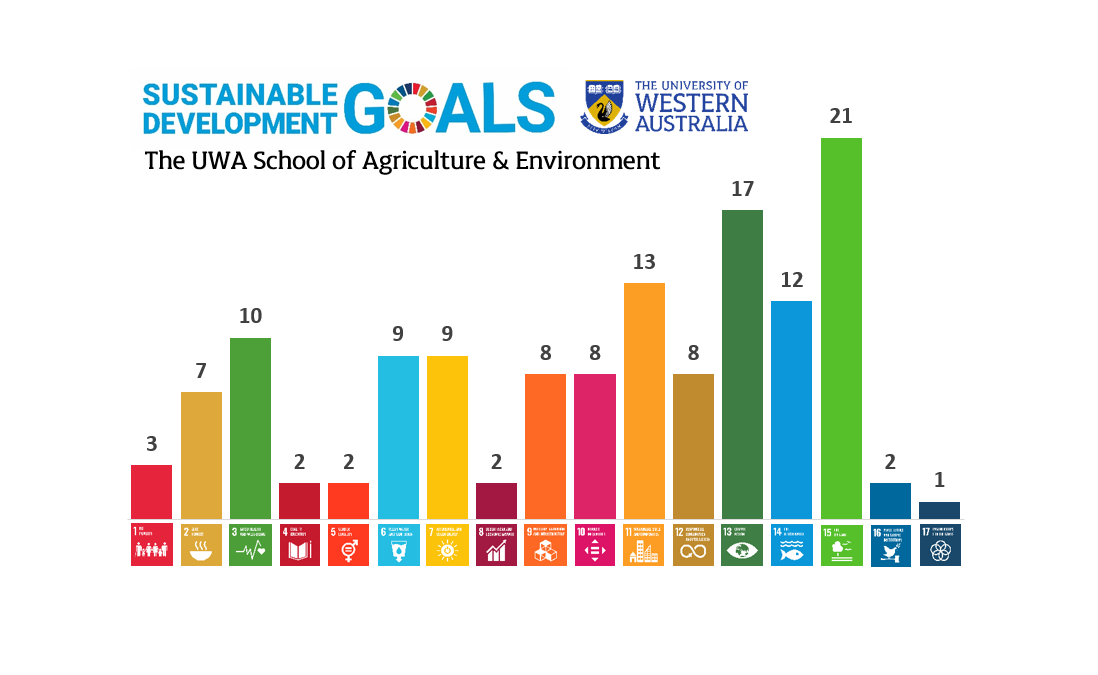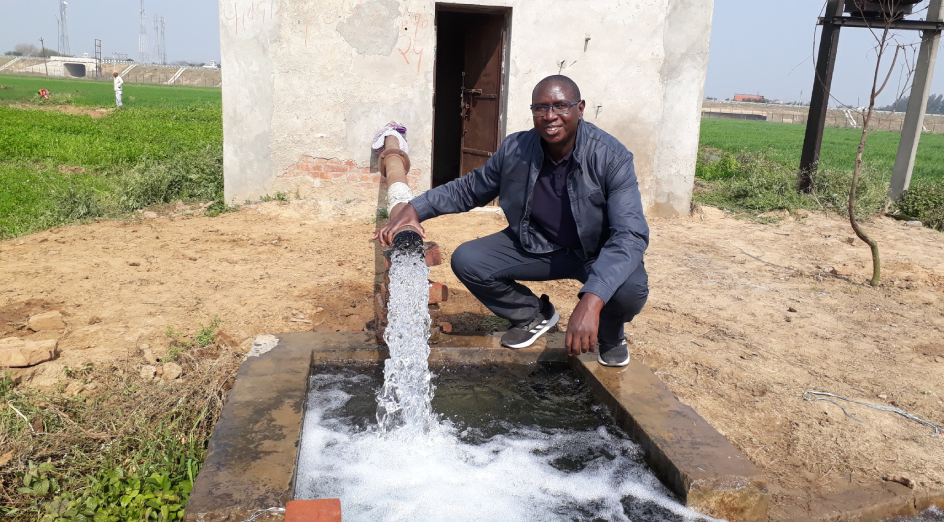The University of Western Australia’s (UWA) School of Agriculture and Environment has adopted the United Nation’s 17 Sustainable Development Goals (UN SDGs) at the heart of its teaching framework.
The UN SDGs cover a wide range of complex issues, addressing challenges faced by themes across the UWA School of Agriculture and Environment: including environmental sustainability, climate action, feeding the world and economic inclusion.

Image: Count of units taught within the UWA School of Agriculture & Environment relevant to the United Nation’s 17 Sustainable Development Goals. Note: units taught may cover several UN SDGs.
The SDGs are fundamental to how many units are taught within the UWA School of Agriculture and Environment. " We use the SDGs as a framework for our students to relate the social, economic, and physical aspects of our environment. Integrating this with the techniques they learn to model remote sensing data, provides an integral component in understanding the complexity of earth observation data for monitoring and mapping change in our environment, ensuing that our students are aware of the need for a holistic approach to environmental and agricultural management. " says Dr Sharyn Hickey, lecturer in Environmental Geography.
Embedding agricultural studies with environmental studies means that we can share resources and knowledge across these fields in a way that is really important to the incoming cohort of students. “There is a strong focus on the future of sustainable agricultural production systems in our teaching and research at UWA”, says Dr Joanne Wisdom, lecturer in Agricultural Science. “This collaboration gives us a unique perspective when addressing the UN SDGs of responsible consumption and production towards zero hunger in the context of life on land and below water while we are mindful of the contribution to, and effects of, climate change.”
When asked how UWA students are being taught how to reduce inequality within and among countries (SDG 10), Agribusiness lecturer Dr Amin Mugera says "in my unit Agriculture and Economic Development, we examine the role of agriculture in the process of achieving economic development and the contemporary challenges faced by developing nations in this space". A unit such as Prof. Mugera’s provides students with more advanced tools and resources to implement social, economic, and environmental change.

Image: Dr Amin Mugera in Uttar Pradesh, India, pictured with a tube well bringing groundwater to the local community. The water is used for domestic use and irrigation. Water is essential for achieving UN-SDGs of zero hunger, good health and well-being, and clean water and sanitation.
From local contexts to global issues, the SDGs provide a familiar and uniform framework for all researchers, lecturers, and students. The UWA School of Agriculture and Environment has identified that the UN SDGs are fundamental to providing students who come to study the natural world with tools that will equip them into a changing and challenging future. These 17 goals are defining to students who are at the beginning of a complex social, economic, and environmental journey, academically and into their future. “It’s important for our students to learn the many ways humans interact with natural and urban environments to provide them with the best tools for addressing SDGs in their future careers”, says Dr Caitlin Moore, lecturer in Environmental Science.
As a whole, UWA is focused on solutions to climate change and creating a more just and equitable world post-COVID-19. UWA has set itself a task of “Grand Challenges” which they say are “deep and difficult issues, with no clear solutions, that require new ways of working across disciplines and sectors to effectively address.” The practicality and solutions to these grand challenges will be underpinned by the UN SDGs.
At its very core, the UN SDGs recognise tackling grand challenges such as climate change and preserving our oceans and forests, goes hand-in-hand with strategies to end poverty, improve health and wellbeing for all, boost economic prosperity, and reduce inequality.
Fostering the critical thinking skills that is required to solve these challenges for future generations is of upmost importance to the lecturers and researchers within the UWA School of Agriculture and Environment.
